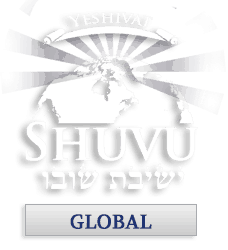This week’s double portion is a very familiar one. Achrei Mot is the Torah reading for the Shacharit service on Yom Kippur. It describes the Avodah, the temple service, of Yom Kippur. One of the larger tractates of Talmud, tractate Yoma, is dedicated to the temple service of this one day of the year. Yet this Avodah on this one day of the year is quite commonly misunderstood within the community of believers. Why is it done? What is the nature of the atonement? After the execution and resurrection of Yeshua the Messiah, what relevance does it have?
The answers to these questions are crucial to the understanding of all of Scripture. Lack of understanding about this day, about this temple service, has led to the greatest misunderstanding of Yeshua the Messiah, that is, replacement theology. It is not an exaggeration to say that if one understands the Yom Kippur service, one understands Scripture; and if one understands the Yom Kippur service, one understands Yeshua the Messiah.
One of the great lessons of the Yom Kippur service is the idea of differing roles of people in Scripture. In the Avodah, the Kohayn Gadol has a role, the Kohayns have a role, and the Levites have a role. Three times a year, Israel is to gather at the temple in Jerusalem. Yom Kippur is not one of those times. Pesach, Shavuot, and Succot are the times to gather. Yom Kippur is not. Yom Kippur is the time of intercession of the Kohayns, and of the Kohayn Gadol specifically. All Israel has a role (we are to fast), but all Israel does not have a role in the temple service. This is the day of intercession.
The Avodah on this day is for the atonement of Israel. It is not for the atonement of individuals, individual atonement is for every day. Yom Kippur is for the atonement of the nation, which is accomplished through the intercession of the Kohayns. Yom Kippur is about national atonement, national responsibility, the role of the nation of Israel before Hashem, and the role of Israel as a nation before the world. Israel is the only nation that has a relationship with Hashem, therefore, Israel is the only nation that must atone. Therefore, Israel is the only nation who is a kingdom of Kohayns; Israel is the only nation who is charged with being a light to the other nations. Yeshua the Messiah came, was tortured and executed for the atonement of sins of individuals that believe in him. When Yeshua the Messiah returns, the atonement of the nation of Israel will be completed, not by his death, but by his life.
When one attaches themselves to Israel, one declares support for the role in Hashem’s plan for the atonement of the world through Israel. When one is grafted into Israel, one does not become Israel, rather, one becomes part of the process of the atonement of the world through Israel. There are different roles. There is Yeshua the Messiah, there is the Kohayns, there is the Levites, there is Israel, there are those grafted into Israel. All these play an important part in the coming atonement of the world. All these have different roles, but all are important. All of these roles only have meaning when it is understood that Israel’s place in God’s plan has not been replaced. Israel is not replaced by the church; Israel is not replaced by individuals. Israel is Israel, and has been and always will be an essential ingredient in God’s plan for the redemption of the world.
Unless one understands the Avodah of Yom Kippur, one cannot understand Israel’s unique and separate (holy) role in bringing about the redemption of the world. Unless one understands the intercession of the Kohayns during the Yom Kippur service, one cannot understand the intercession of the Messiah for Israel and for the world. So it is entirely fitting that the two portions (Achrei Mot and Kedoshim) are connected, because differing roles are another form of separation that we see in Torah. Be holy because I am holy, meaning, be separate because I am separate. It is an acknowledgment of the importance and difference in each of the roles that are illustrated in the Avodah of Yom Kippur.
Therefore, whether you are Israel or are grafted into Israel, celebrate and understand being part of God’s plan through the corporate role that we are part of. Rejoice and celebrate being in this together, having a relationship with Israel, and with Hashem. And understand that connecting with the corporate role is part of our elevating as we continue to draw near to Shavuot.
